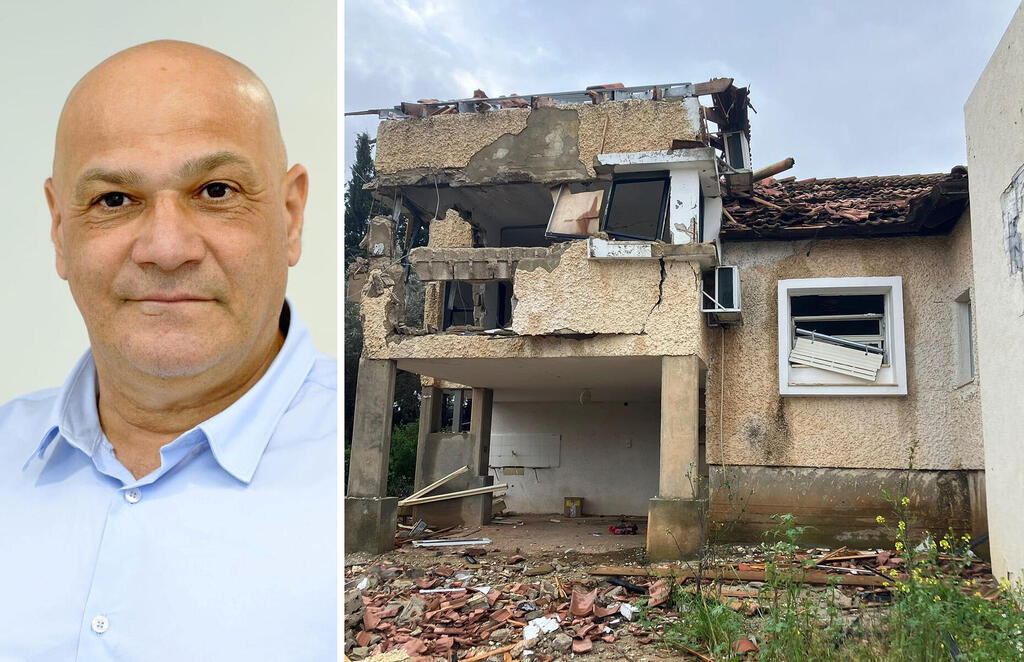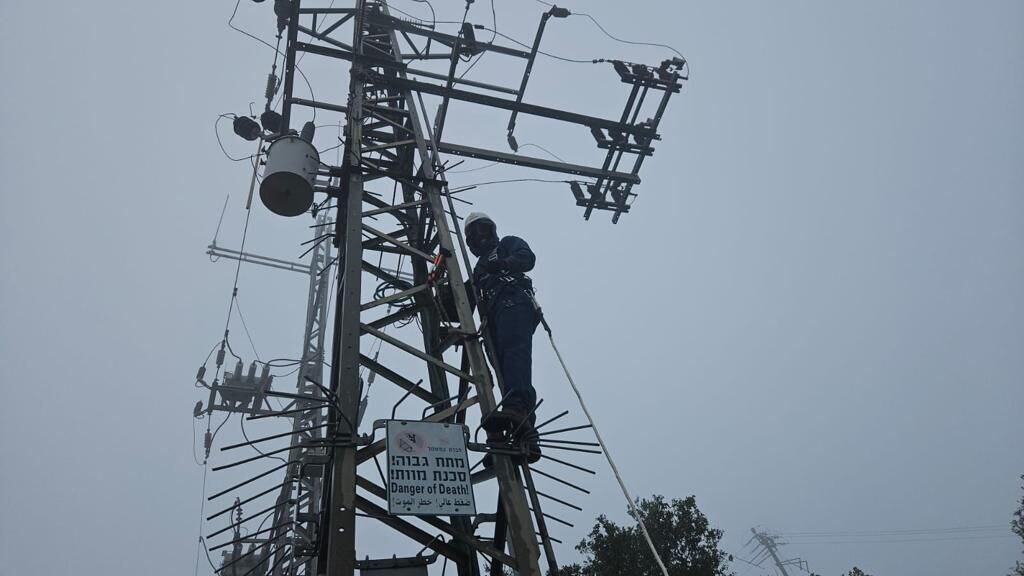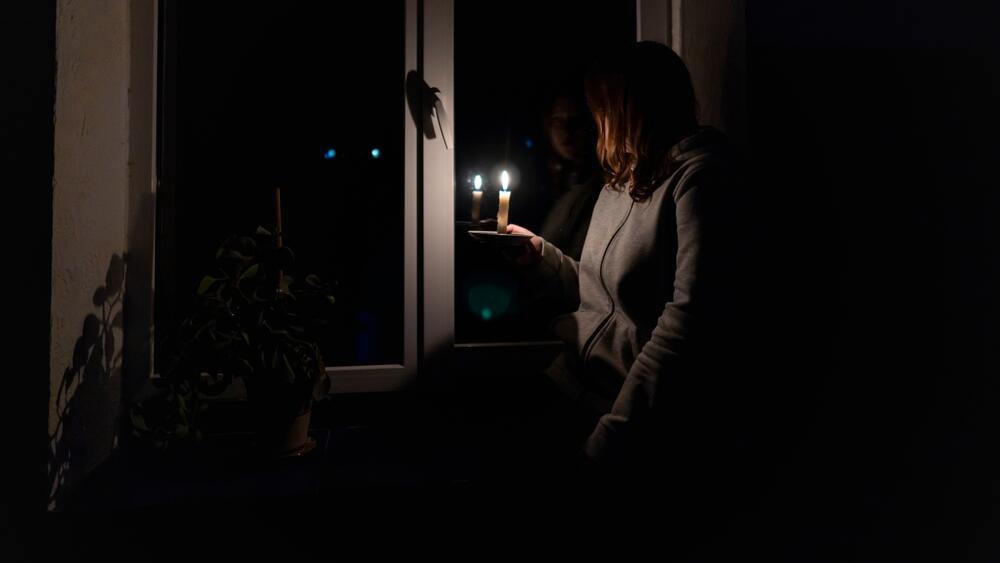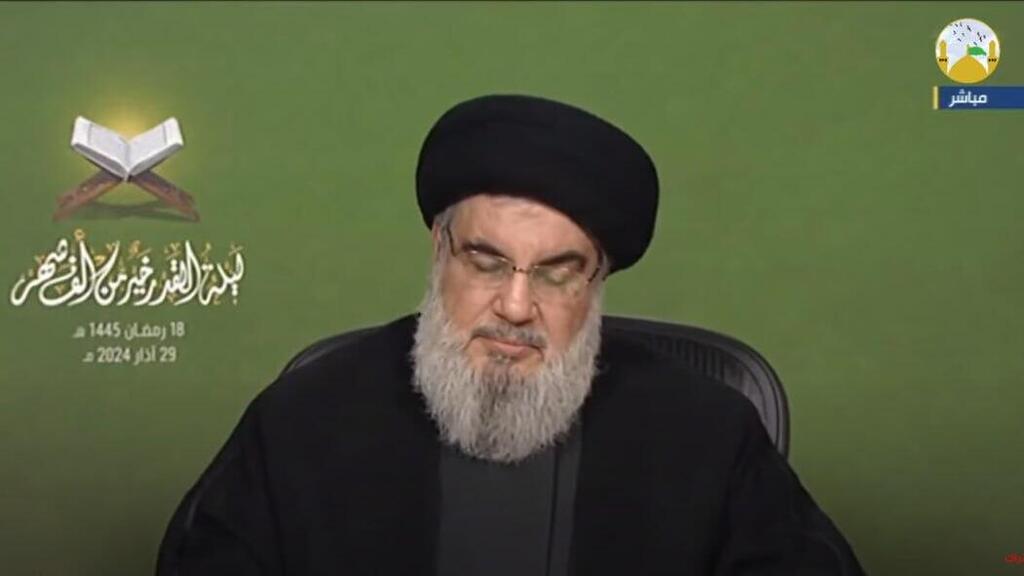Getting your Trinity Audio player ready...
Brigadier General (res.) Yoram Laredo, head of Israel’s National Emergency Management Authority (NEMA), held a briefing with Defense Ministry officials on Monday explaining the steps being taken to prepare for a war against Hezbollah on the northern border.
4 View gallery


Yoram Lardo, Israeli home hit by Hezbollah rocket
(Photo: Edward Doks, Defense Ministry)
According to Laredo, in recent months Israel has increased its emergency rations of essential raw materials, food, medicine, and medical equipment on an unprecedented scale, investing approximately 2 billion shekels into the process in preparation for a possible war. Laredo’s briefing was done as part of an emergency conference organized by Manufacturers Association of Israel in preparation for the industrial sector's involvement in the fighting in Lebanon.
Laredo didn’t provide details about the current resources available to Israel, but said they would be necessary to ensure a working economy during a comprehensive war characterized by widespread drone and missile fire towards Israel, on a scale significantly larger than in the early days of the Gaza war.
“A comprehensive war will disrupt Israel's supply chains and challenge its inventory stocks. When the first ship is set on fire off the coast of Israel, other vessels will be deterred from arriving, and this will continue throughout the war. The overwhelming majority of all goods coming to Israel do so via the sea,' he said.
According to him, Hamas didn’t not pose a significant threat to Israel’s functioning economy at any stage, but this isn’t the case in a scenario unfolding in the north. He added that on the first day of the war with Hamas, it fired about 2,500 rockets toward Israel, while the average daily rate of fire by Hezbollah would be twice that, threatening Israel's power grids and causing severe damage to its electricity infrastructure.
He said the number of missiles Hezbollah may rain down on these infrastructures could lead to two national power outages lasting up to two days, with some areas extending beyond that, and even lasting months in certain parts of the country. He didn’t specify which in Israel he was talking about.
Bar Cohen, head of the Emergency and Operations Department at the Israel Independence System Operator NOGA, addressed the expected disruptions in power supply to the economy, saying, “In the next war, many power outages will take place, no one can commit energy will continue to function normally.”
According to him, the immediate impact of a war in the north will be felt in the supply of natural gas, from which about 70% of Israel's electricity is generated. “As soon as a three-front war breaks out, the natural gas production sector will stop operating for their own protection, and switch to producing electricity via on alternative fuels exclusively.”
He added, “We estimate many of our power stations will be affected, and we’ll lose thousands of megawatts. There will be disruptions in the electrical grid, both due to missile fire and fires that may break out, and due to incidents that will damage electricity pylons. Other than the two national power outage events, there will be 11 regional power outages and many more local power outages."
One of the central models upon which the security establishment and bodies entrusted with the national electricity grid base their assessments for a comprehensive war is the systematic attacks carried out by Russia on Ukraine's power facilities in recent years.
It’s believed that the similarity in the structure and operation of the Israeli electricity grid with those of many other countries worldwide may allow Hezbollah's to damage it more easily. “While Ukraine received electricity from Germany and Moldova, we have no neighbors to supply us with power,” he said.
He added that rationing will be implemented to preserve essential fuel stocks in Israel even in the early stages of such a war. In such a scenario, daily power outages of four to six hours are expected.
Dror Greenberg, head of the Israel Electric Corporation’s Emergency Control Department, said these threats have led to the corporation investing 180 million shekels in passive defense measures designed to minimize damage to power stations across the country.
These defenses are intended to minimize the damage caused by missile fired in large quantities toward the stations. According to Greenberg, such defenses are planned to be installed at about 100 substations in the near future.
Against the backdrop of daily clashes with Hezbollah in Lebanon, which have been going on for almost half a year, and the high probability of a comprehensive war in the region, Laredo said his scenarios may change depending on whether Israel or Hezbollah will attack first.
According to Laredo, “You’ll know that a war has begun when you wake up in the morning or in the middle of the day. The defense minister previously said that we’ll know we’re at war when Israel bombs Beirut. Most of the launches will be directed toward settlements in the north from Haifa northward,” he said.
Ron Tomer, head of the Israel Independence System Operator, said the issue of readiness for war occupies Israel’s entire manufacturing sector. He added that despite the ongoing fire toward Israel from Lebanon, industries in the northern part of the country are careful to maintain production lines.
He called on Israeli industrialists to prepare for an upcoming escalation and increase their stocks of raw materials needed to allow the economy to function.





